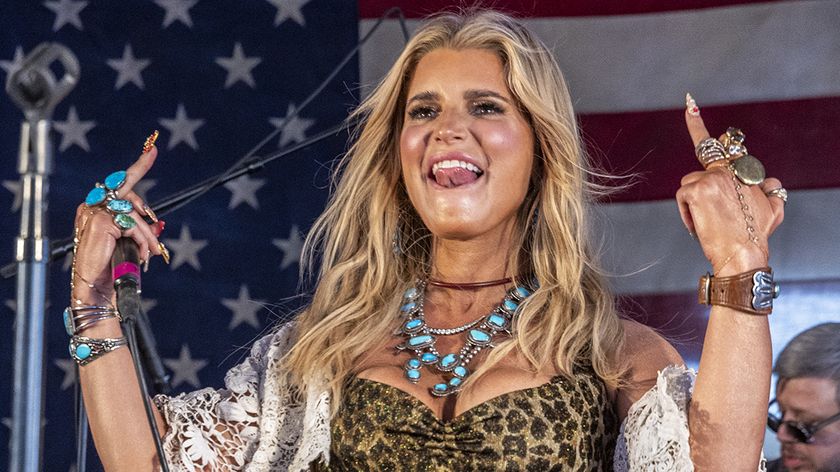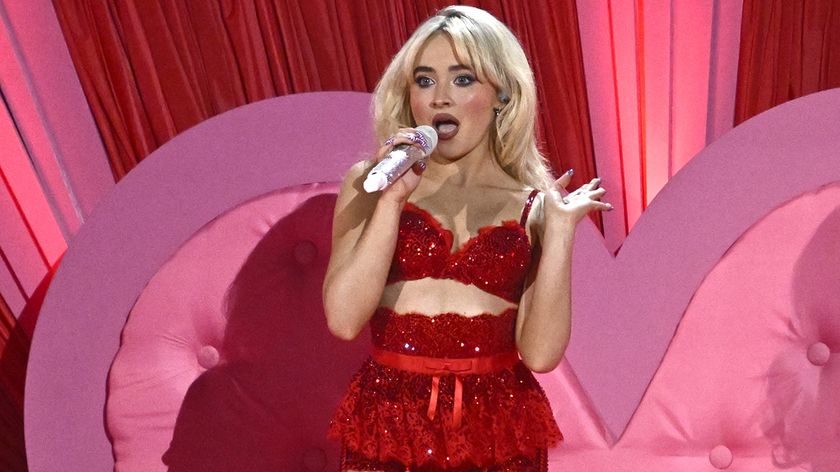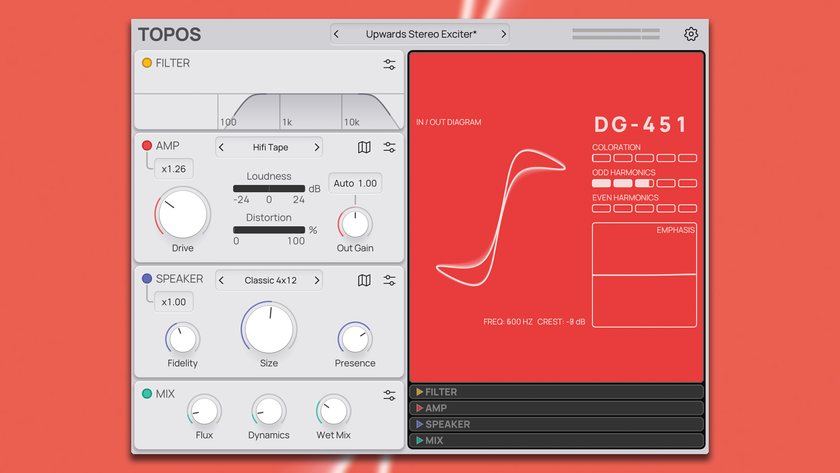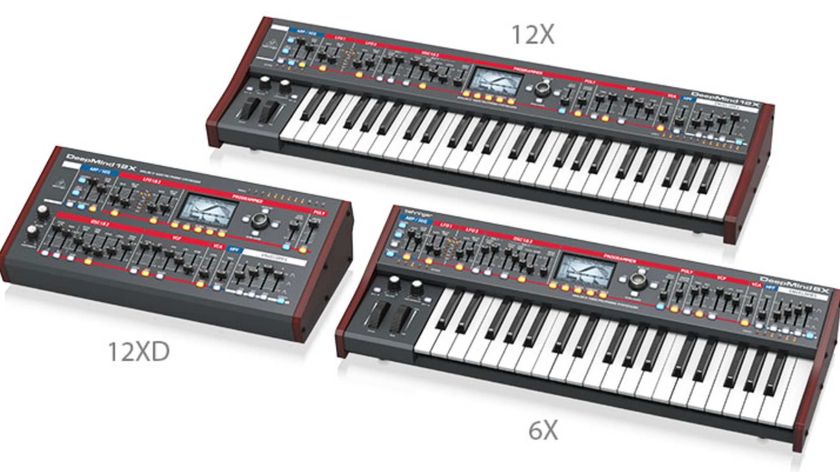Classic album - F**k Buttons on Tarot Sport: “We weren’t gearheads. If you can write a song, you can write a song on anything”
Andrew Hung and Benjamin John Power on their Andrew Weatherall-produced second album
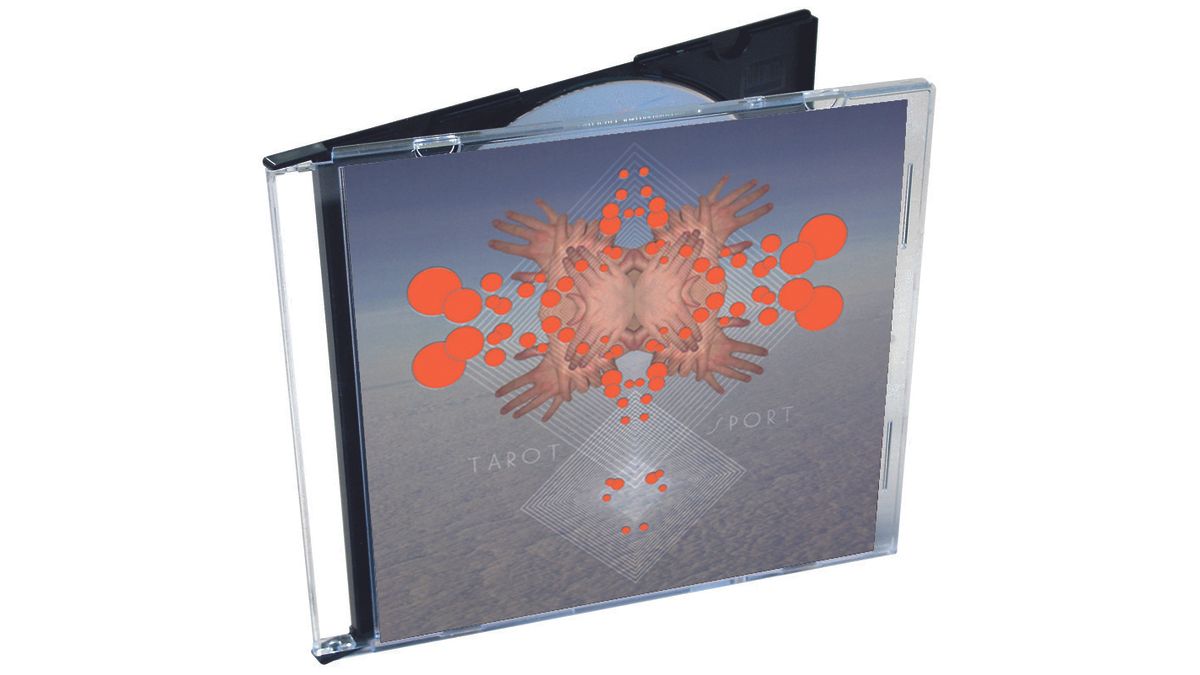
When the kings of noise needed someone to add a dance music punch to their electronic dronescapes, there was only one man for it: Andrew Weatherall.
“We wanted that more ‘four-to-the-floor’ sound,” says Fuck Buttons’ Benjamin John Power. “He had a wide history of working with that stuff, so he helped push us in that direction.”
“It was a brilliant idea,” says fellow Button, Andrew Hung. “His work on albums like Screamadelica had that mix we were after. And our manager drank in the same pub as him as well, so that helped getting him on board [laughs].”
Armed with a handful of prewritten tracks, Hung and Power descended into Weatherall’s subterranean studio, The Bunker, festooned with army netting and war memorabilia, and started to flesh out their second album, Tarot Sport.
“At that point each track was only made up of five things,” says Hung. “With keyboards on a couple of tracks, then some beats, sampler bits, and stuff from a microphone. Weatherall was like, ‘Where’s the rest of it?’ [laughs].”
The seasoned producer and his engineer hunkered down, fleshing out what Hung and Power had given them, and zeroed in on any sonic issues that came with the raw material.
“It would take them a couple of hours just to get rid of the nuisance frequencies,” says Hung. “It was so innocent, that time. We didn’t know how to write or record music. We didn’t know anything. We had to have help to do that.”
Get the MusicRadar Newsletter
Want all the hottest music and gear news, reviews, deals, features and more, direct to your inbox? Sign up here.
Between them they all realised an album, swelling with emotion, mood, drive, passion, and power. Tarot Sport took the naïve and playful sonic experiments Hung and Power had dreamt up, and, through Weatherall’s clear stewarding, added a clarity of beats and balance that hasn’t diminished to this day.
“It was a new thing for us,” says Power. “For a pure noise band, we were one of the first to link a melody to it, and add dance music, to a certain degree.
“We had Weatherall’s studio and things to mess around with, now. We hadn’t been presented with the opportunity to play with all these strange and wonderful things before. We were kids in a sweetshop, really.”

Track by track with Fuck Buttons’ Andrew Hung and Benjamin John Power
Surf Solar
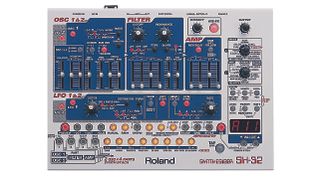
Hung: “We recorded in The Bunker – Andy Weatherall’s studio. I’m sure he used Pro Tools and a big Mac with the grate. Then Yamaha NS10s and a pair of ADAMs. It was quite basic.
“We were using toys – kid’s pianos, Casio stuff. Ben had an ’80s keyboard called a [Casiotone] MT-11. It had analogue circuitry. I had a Roland SH-32, and the [Casio] SA-5, which was one of the first kind of digital keyboards. Then we had an EBow, and beats were made on a Game Boy using LSDj. We also used a ‘thunderstick’ percussion tube to get rumbling sounds.
Power: “I had a Boss Looper, two Metal Zones, a Slicer pedal, a small Fisher-Price karaoke machine, some delay pedals, a Jackhammer, and a small mixer. Then an MFB Synth II and an Omnichord.
“We weren’t gearheads. I’m a firm believer that if you can write a song, you can write a song on anything.”
Benjamin John Power: “We had no goal in mind when making the album. It was just pure exploration. Tarot Sport had already been written when we went into the studio [with Andy Weatherall]. That was the last time we went into somebody else’s space, with a producer, using their studio.
“After this album I kinda then built a studio for Fuck Buttons [called Space Mountain]. Tarot Sport was the last thing that we did outside of our own space.
“It was a real quick period between the first album and this one coming out, too. It was only a year.”
Andrew Hung: “The writing didn’t take too long to do. It never does, really. Each tune we wrote in an afternoon. The actual recording and mixing, and a bit of production, was done in three weeks.
“The first track we worked on was Surf Solar. I remember that it had a really weak kick! I remember Weatherall brought in the [Roland] 808 and I was like, ‘Oooh!’ [laughs]. We’d also just bought a Slicer pedal, so we were slicing vocal samples. That’s what drove that track.
“We had a basic setup, including my keys, which was a distorted organ. Then Ben had his organ, but that wasn’t distorted until it kicked in, at the end of the song. Then I had a [Casio] VL-Tone, which did the high melodies. That was our basic setup. Then we’d have beats, as well. We’d have one element that would drive the production of that song. For this one it was the vocal slicing. Not sure where the vocals were from.
“We were in the habit of randomly recording things as well. We had a library of that. We were constantly mining that for sample sources. That was a big part of our process. We weren’t organised, though [laughs]. We liked being surprised.”
Rough Steez
Hung: “This was the most incomplete track that we went into the studio with. We did all these songs sequentially. So, on the first day we did Surf Solar, then the next day we worked on Rough Steez.
“When Weatherall did Surf Solar we didn’t actually turn up that day. He said, ‘Oh, just come over in the afternoon because we need to do all our stuff to get ready’. So we popped in later in the day and heard what he’d done and went, ‘This is fucking amazing! We don’t need to do anything!’ [laughs]. The next day on Rough Steez we came in and he had this glam rock triplet drum thing going on that he’d sampled off an old Gary Glitter record [laughs]!
“At the time I was gobsmacked...And after a few hours I piped up and went, ‘This is not our track...’ From that second day onwards, that’s when we first started turning up in the morning [laughs]. I think that Glitter beat is still in there actually, but low in the mix.
“This was the track we used an EBow on, as well.
“This track was always going to go here on Tarot Sport, as well. With these albums we had a template. We used the first track as a banger. Then we used the second as a cleanser, before picking it back up again.”
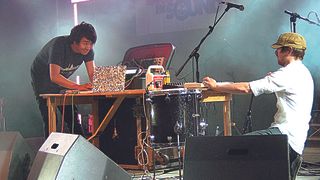
The Lisbon Maru
Hung: “Tarot Sport was where we hit our stride. We used the middle section of this album as momentum. Then we reset it again. Then we had the enders.
“I loved the beat that’s on this. It has that militaristic beat. It was similar to Sweet Love For Planet Earth [from the debut album, Street Horrrsing], as well, as it had that delayed bassline, too.
“On this track we introduced the snares and the bells. It worked really well. I loved the snares on this. It had a lot to do with Weatherall.
“Yeah, the tracks mix into each other. That was something we continued from the first album, too.
“In retrospect Fuck Buttons was kinda like this crescendo [laughs]. Just like the music, I guess. It was continuation, continuation, continuation. And then tweaking at the same time.
“We had a few bits and bobs that we had thought of putting in between the tracks as cleansers, or whatever. I remember Weatherall had said, ‘Sometimes you just gotta drive the truck through the wall!’, so we decided to follow The Lisbon Maru with Olympians.”
Olympians
Hung: “The beat on this was written on the Game Boy, and that’s what drove that one. It was a really inventive process. It was really pure. I got really into it.”
Power: “I used the MFB Synth II on the intro to this and Surf Solar, as well. They have that very delayed out, arpy, high drone brightness to them.
“I also had a [Suzuki] Omnichord, which had some dodgy drum pattern presets built into it. And that was going through a Slicer and Boss delay pedal, and that was just being manipulated on the fly.
“We always wrote in a very live sense. We’d set up as we would set up for a live show when we were writing. We weren’t working with super dense layers. It was pretty stripped down.”
Hung: “The London Olympics was in 2012, but they started building the stadiums and stuff way before that. I had to travel between West and East to where Ben was living to write music at that time. So I’d be going on the overground, seeing stuff like that. The city was building up to the games. There was something in the air, which fed into this track.”
Phantom Limb
Power: “These less grandiose tracks were more like fun jam sessions. We just tried to lock into a groove, and then maybe embellish on top of that.
“With tracks like The Lisbon Maru and stuff, there was more of a melodic content that we would try and build upon and draw it out. But on stuff like Phantom Limb and Rough Steez we were more experimenting with the idea of groove here, and making a weirdo groove. They’d just be jam sessions. They were a lot of fun, though.”
Hung: “We were young at the time, but it was quite serious, the music we were making. We had a natural inclination to do something… a bit bizarre. That would often make its way into some of the tracks, and other times you’d just have a splurge of whatever you wanted to do. Phantom Limb was like that. It was very effects-driven. It was just… playing. That was, and still is, very important. It has to be fun. This is a fun track.”
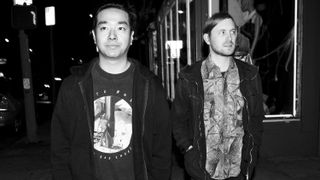
Space Mountain
Hung: “We were using a Roland SH-32, which was quite prominent on the first two albums. By this track, I felt that I’d got quite good at my tools at that point. I remember playing the SH-32, a little Casio keyboard, and the VL-Tone. So I was playing three parts on that [laughs].”
Power: “Andy used to use the SH-32 more than me. He used it on a few things. We didn’t separate roles, as such. But we’d have our own little collection of stuff that we’d go to.”
Hung: “We had a delay pedal that we synchronised with the SH-32. There was an arpeggio going on with that synth, so that was fun. Also, the beat wasn’t so pounding. It was more rolling. I remember in the studio that they put a 4/4 beat behind it to start with and I didn’t know how to describe what I wanted it to be. I’d not learnt to ‘talk’ musically. I said, ‘It’s not this [mimes a steady hand movement]. It’s this [mimes a more swinging one]’. And Weatherall instantly got that. It’s interesting. They turned it from a 4/4 into what it is now. He changed up the hi-hats and I was like, ‘Yeah! That’s it!’
“With this one I remember feeling like we’d made the perfect loop. We were always looking for the perfect loop and this was the closest we got.”
Flight Of The Feathered Serpent
Hung: “This was a song we’d written even before Street Horrrsing had come out. We were playing that ages ago. We originally called it Bright Tomorrow Part 2. I think this track is the strongest link between Street Horrrsing and Tarot Sport.
[Surprised] “It’s quite fast this one, isn’t it? It’s like 140bpm, or something. The beat for this one was written on Cubase, which I haven’t touched since [laughs].
“For me Tarot Sport felt like an achievement. We’d got somewhere. Street Horrrsing represents the beginning of that, then Tarot Sport is like, ‘Right! This is what we’re trying to do!’ It was so innocent, that time. We didn’t know how to write or record, so we just focused on making it. What we were doing was just communication through sounds. It was fun. We didn’t label it. But as soon as it started get attention... the labels came [laughs]. When I listen back to this, I want that again. Not the aesthetic, but just... to play!”


Future Music is the number one magazine for today's producers. Packed with technique and technology we'll help you make great new music. All-access artist interviews, in-depth gear reviews, essential production tutorials and much more. Every marvellous monthly edition features reliable reviews of the latest and greatest hardware and software technology and techniques, unparalleled advice, in-depth interviews, sensational free samples and so much more to improve the experience and outcome of your music-making.

"Reggae is more freeform than the blues. But more important, reggae is for everyone": Bob Marley and the Wailers' Catch a Fire, track-by-track

“Part of a beautiful American tradition”: A music theory expert explains the country roots of Beyoncé’s Texas Hold ‘Em, and why it also owes a debt to the blues


